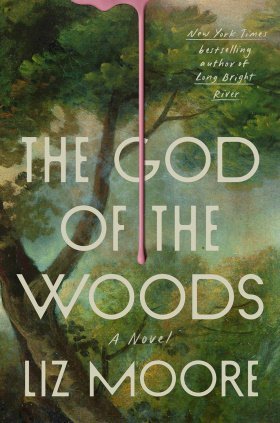Judy stands outside, hands on hips, considering the cars in the parking area next to the house. Stately Cadillacs and Oldsmobiles and Lincolns, mostly. She tries to picture a blue Trans Am among them. It would have stood out.
She turns in a full circle. Two dark angry ruts in the dirt driveway indicate a car backing out with vigor, then pulling off toward Route 29.
She knows that the information she now has on John Paul McLellan Jr. is important. His late reentry into the house; his battered face; his disappearance this morning: all together, they make him at minimum a person of interest. But as a junior investigator, she isn’t authorized to do anything without her superior’s approval.
She checks her watch, wondering when Denny Hayes will return.
• • •
After a few minutes, she walks back into the house. While she waits for Hayes, she knows she should continue to isolate and interview everyone else she can find.
The lanky young people sprawled out on all the furniture in the great room are the people she is least eager to speak to. They look somehow like they should be feeding one another grapes; like young gods—in their own minds, at least. Still, she approaches them, one after another, asks them politely if they’ll speak with her, and then brings them into an empty sunroom she found while walking the house.
There, she asks them her standard questions: name, age, occupation, primary place of residence—to which every one of them replies Manhattan or Los Angeles.
The last person she interviews is a thin, severe-looking twenty-three-year-old. The only one who tells Judy she has been staying in the main house itself, as opposed to an outbuilding.
Her name, she says, is Marnie McLellan.
Upon hearing the girl’s last name, Judy pauses, goes still for a moment.
“Occupation?” she says.
“Gallerist.”
Judy doesn’t know the word. She writes it down; tells herself she’ll look it up later.
“Relationship to the Van Laars?” she says.
“Goddaughter.”
“Are you close?”
Marnie McLellan lifts her chin. “Extremely.”
Judy holds her pen over her notepad. She must, she knows, tread carefully here.
She asks the girl the same set of questions she’s asked everyone else, and gets similar answers—she was at the party, she stayed up late, there was a good deal of noise, a good deal of drinking. She went to bed at four in the morning. She knows Barbara well—the families have spent a good deal of time together, have vacationed together, too; but she has no theories about where the girl might be now.
“How would you describe Barbara?”
“Oh, miserable,” says the girl. “Just a really unhappy person.”
Judy nods. In her notepad, she writes: Dislikes B.
“How so?” she says.
“Well, she’s always given her family a really hard time. I know she’s gotten into trouble at school. She’s supposed to be kind of fast for her age. And she wears clothes and makeup that are—” Marnie pauses here, summoning up the words to describe them. “They’re terrible. All black everything. Dark rings around her eyes. Spikes in her earlobes. Really upsetting, if you ask me. The product of a disturbed mind.”
Judy hasn’t heard this before, about Barbara.
She writes: B. dressed oddly.
At last, Judy works around to the questions she’s been waiting to ask.
“Are the other members of your family staying on the grounds as well?”
“Yes.”
“Can you tell me their full names?”
“Why?”
“Just trying to put together a list of all the guests. To make sure I’ve covered all my bases before my boss gets back,” Judy adds. Smiling, deferential.
Marnie is very still.
“My father,” she says, “is John Paul McLellan Sr. My mother is Nancy McLellan.”
Judy looks at her. “Occupations?”
“My mother’s a homemaker,” says Marnie. “My father is a business partner of the Van Laars.”
“A banker?” says Judy.
“An attorney. He represents the family, and the bank.”
Judy nods, writing. Then asks, with forced calm: “Do you have any siblings?”

























